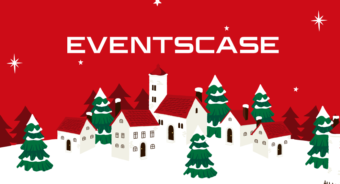The success of any event lies in its ability to attract and retain an engaged audience. In the digital age, online ticketing has become an indispensable tool for event organisers, providing global reach, transactional efficiency, and valuable data collection about attendees. This article provides a comprehensive guide on how to sell event tickets online, highlighting proven strategies, and the importance of choosing the right registration platform.
We would also like to present a case study from the VDS2023 that we hope will inspire your next event.
Importance of Online Ticketing
Online ticketing has revolutionised the way event organisers connect with their audience. Not only does it simplify the purchasing process for attendees, but it also offers organisers a platform to reach a wider audience without the geographic limitations of physical outlets. Online sales allow for real-time data collection on attendee preferences and purchasing behaviour, which is a powerful tool for strategic decision making and personalisation of the user experience. It also facilitates the implementation of targeted marketing strategies, such as audience segmentation and personalised email campaigns, thus optimising the reach and effectiveness of event promotion.
Online ticketing is essential not only to maximise sales and attendance, but also to adapt to the digital expectations of modern consumers, who are looking for convenience, accessibility and speed in all their transactions. This opens the door to pre-sale opportunities and special promotions, which can increase interest and anticipation for the event, enhancing the customer experience from the moment of purchase.
Advantages of Digital Platforms to Sell Event Tickets Online
Digital ticketing platforms offer multiple advantages for both organisers and attendees:
- 24/7 Accessibility: tickets can be purchased at any time and from anywhere, eliminating time and location restrictions.
- Global Reach: they enable event organisers to reach an international audience, significantly expanding sales potential.
- Data Collection: they facilitate the collection and analysis of data on attendees, allowing for a better understanding of the audience and customisation of future offers.
- Marketing and Promotion: they allow for integration with digital marketing tools, such as email marketing, social media advertising and web analytics, for effective event promotion.
- Attendance Management: online platforms offer tools for ticketing and attendee management, including registration, seating allocation and digital ticketing, which significantly reduces the administrative burden and operational costs.
- Security and Trust: secure online payment systems increase shoppers’ confidence, and digital ticket management reduces the risk of fraud and duplication.
- Flexibility in the Offer: they provide opportunities to offer different types of tickets, promotional packages and discounts, adapting to the needs and preferences of different audience segments.
- Sustainability: by reducing the need for physical tickets, digital platforms support sustainable and green event initiatives.
Choosing the Right Platform
Choosing a ticketing platform is crucial to sell event tickets online. It should offer a user-friendly interface, customisation options, and integrated marketing tools to promote the event effectively. Consider platforms that allow for social media integration, detailed analytics, and exceptional customer support. Comparing popular platforms will help you make an informed decision, looking for those that best align with your needs and those of your target audience.
Key Features of a Ticketing Platform
When considering the key features of a ticketing platform to sell event tickets online, it is essential to focus on functionality that optimises event management and enhances the experience for both organisers and attendees. Some of the most relevant features include online ticketing and registration, mobile applications, email marketing, a detailed event itinerary, CRM integration, and the ability to integrate with social media. These features allow for efficient management and enhanced interaction with attendees, offering a seamless and professional user experience.
In terms of the importance of selecting the right software to sell event tickets online, it is crucial that event organisers set a clear budget and objectives, design and implement an effective marketing plan, and carefully evaluate the success of the event using the analytical tools provided by the software. Good event management software can significantly simplify event planning and execution, improve attendee engagement and provide valuable insights for future improvements.
For event organisers looking to optimise their processes and deliver memorable experiences, exploring and comparing different platforms based on these features and benefits is a crucial step.
Creating an Attractive Event
Your event needs to stand out in a sea of options. This means not only having a unique concept, but also presenting it in a way that captures attention. Invest in an attractive design for your event page and make sure the description is clear, concise, and enticing. Including attractive visual elements and testimonials from previous events can significantly increase interest.
Promotion through Social Media and Online Media
Social media plays a crucial role in the promotion of events. Instagram is ideal for B2C events, such as music festivals, due to its young audience, while Facebook allows you to create event lists and invite participants, creating a dedicated group. LinkedIn, on the other hand, is excellent for B2B events, offering advertising options to connect with specific professionals. In addition, paid search advertising (PPC) and retargeting are effective methods to funnel audiences to your website. These strategies allow you to reach audiences who have shown interest in your event or who have attended similar events, thus increasing the chances of ticket sales.
Email Marketing
Email marketing is a powerful tool for event promotion, accounting for a significant percentage of ticket sales. An optimal email marketing strategy should include personalised messages, use of a varied tone and typography style, audio-visual and interactive elements, personalisation of the message by the user, feedback surveys, thank yous for attendance and promotion of future events. Personalisation and creativity in emails can significantly increase interest and attendance at your event.
Tips to Optimise Ticket Sales
Use UTM Data and Parameters for Tracking
It is vital to collect data and understand how to use it to measure the success of your events. Determine what is most important to your organisation: ticket sales, actual participation or audience feedback.
Create Incentives for Ticket Sales
Offering early booking or group discounts can increase sales. Partnering with sponsors to activate promotional codes can also provide additional publicity and increase sales.
SEO and PPC
Being an authority on a specific keyword may take time, but the long-term benefits of a good SEO strategy are valuable, as it leads to high and continuous organic traffic. PPC is also a useful tool, especially if optimised correctly.
Virtual Format for Expanding Outreach
Considering the inclusion of a virtual format can expand the reach of your event and therefore increase the number of attendees. Hybrid events have become a growing trend.
Influencer Marketing
Generating FOMO (fear of missing out) through influencer marketing can be an effective strategy to increase ticket sales. Working with influencers within your industry can attract a wider audience.
Interaction with the Audience
Interacting with your audience before, during and after the event is key to retaining your audience and forming lasting, positive impressions of your event.
Case Study: VDS2023
What better way to discover the keys to selling tickets at events than by looking at a case study. The following case study on Startup Valencia’s VDS2023 highlights how our platform can transform the management of a massive event, attracting 12,000 attendees from 91 countries and facilitating interaction between startups, companies and investors.
With solutions such as a check-in app, an event app to centralise information and communication, and tools for exhibitor registration and management, Eventscase proved to be key in automating processes and reducing costs.
The organisers of Startup Valencia were looking for efficiency in access control, interaction between participants and up-to-date content management. It highlights the importance of technological innovation in event organisation. This case study is a testament to how technology can empower ticketing and event management.
For more details on how Eventscase can transform your event, download the full case study by clicking on the button below.
Conclusions and Next Steps
Selling tickets online for an event is a complex process that requires attention to detail, creativity, and a deep understanding of your audience. By following the strategies and tips provided, you will be well equipped to maximise ticket sales and ensure the success of your event.
About Eventscase
The Eventscase platform helps event organisers manage corporate events, conferences, and trade shows, whether large, small, in-person, hybrid, or virtual. No technical skill is required at all. Anyone can create beautiful event websites, registrations, badges, perform check-ins, event apps, 1:1 meetings and more. Everything under the brand and domain of your company can be implemented with an Eventscase whitelabelled platform.
If you would like to subscribe to our newsletter to get live updates on everything related to our platform – news, blogs, events, announcements and much more, please, register here.








